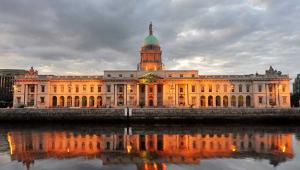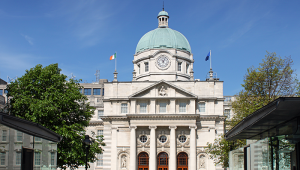By Marino Donati | 15 October 2014
Ireland is to close its controversial ‘Double Irish' tax loophole that has been used by multinational corporations to limit their liability.
In the Budget announcement yesterday, finance minister Michael Noonan said he would require all companies registered in Ireland to also be tax resident.
Under current regulations, companies have been able to exploit rules which allow an Irish company to be tax resident in a tax haven, by creating two companies so that income can be shifted between them to lower corporate tax liability.
The changes to the tax rules will come into force in January for new companies, while existing companies will have until the end of 2020 to comply.
The measures follow international criticism of aggressive tax planning by multi-national companies, which Noonan said had damaged the reputation of many countries.
Last year the Organisation for Economic Co-operation and Development called a crackdown on tax avoidance and evasion, and published an action plan to reform tax laws in the economies of G20 countries.
Noonan said the Budget plans would give certainty to investors about corporate tax in Ireland for the next decade.
‘These measures will enhance Ireland’s corporate tax regime and align it with best practice internationally,’ he said. ‘It will ensure that Ireland continues to be the home of the best and most successful companies in the world. It will attract and retain companies with real substance offering real jobs.’
However, Noonan was emphatic that there would not be changes to Ireland’s competitive corporation tax rate, which has been a major factor in attracting investment into the country.
Noonan said: ‘The government has successfully protected the 12.5% tax rate in recent years. The 12.5% tax rate never has been and never will be up for discussion. The 12.5% tax rate is settled policy. It will not change.”
In his Budget speech, Noonan said the Irish economy was growing at the fastest rate among developed economies, with the rate of job creation one of the fastest in Europe.
He also announced a number of income tax changes including reducing the top rate of income tax from 41% to 40%.
There were also a number of tax measures to support farmers as well as plans to retain the 9% VAT tax rate on tourism related activities.













